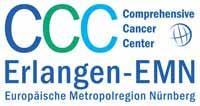Burkitt lymphoma is an aggressive, Non-Hodgkin's, B-cell lymphoma. Its development is associated with the Epstein-Barr virus (EBV), the human immunodeficiency virus (HIV), and chromosomal rearrangements. According to the WHO classification, Burkitt lymphoma is divided into three types: endemic, sporadic, and immunodeficiency-associated. The last group is usually made up of patients with HIV, as well as patients who have had organ transplant surgery. The endemic form is associated with malaria and EBV. In Germany, 90% of children and young adult patients are cured of Burkitt lymphoma. You can make an appointment for treatment in this country on the Booking Health website.
Content
- Diagnostics of Burkitt lymphoma
- Treatment of Burkitt lymphoma in children
- Treatment of Burkitt lymphoma in adults
- Toxicity and side effects
- Why is it worth undergoing treatment in Germany?
Diagnostics of Burkitt lymphoma
The tumor will most often develop in the abdominal cavity, while the head and neck are less likely to be affected by the disease. The reasons for seeking a doctor’s diagnosis are as follows:
- abdominal pain;
- bloating;
- nausea;
- vomit.
If any complications develop, such as gastrointestinal bleeding or an intestinal obstruction, hospitalization may be required. Adult patients often suffer from systemic symptoms, such as weight loss, night sweats, and fevers.
Occasionally, the following organs may be involved:
- jaws (more often in children);
- bone marrow;
- brain or spinal cord;
- testicles;
- skin;
- mammary glands;
- thyroid gland.
Laboratory tests are used when doctors highly suspect lymphoma to be the cause of the patient’s symptoms. The patient will have increased levels of uric acid and lactate dehydrogenase in their blood.
A biopsy is the main method of confirming and clarifying a diagnosis. Doctors obtain samples of the superficial lymph nodes or pleural fluid. The tissues are then examined using immunohistochemical and cytogenetic methods.
A bone marrow biopsy is performed to assess the involvement of the hematopoietic system in the pathological process. If more than 25% of the bone marrow is affected by pathological cells, then Burkitt leukemia is diagnosed. This form of the disease is rare.
A cerebrospinal fluid analysis is conducted to determine the possible involvement of the central nervous system, since brain or spinal cord lesions will change the treatment tactics.
Medical imaging allows doctors to see the tumors on scans, enabling them to determine their location and clarify the stage of the disease. The main imaging tests include CT scans of the chest, abdomen, and pelvis. An MRI scan is rarely conducted. The doctors in Germany also often use PET/CT scans.
To select a treatment regimen, the doctors first determine the stage of the disease. The hospitals in developed countries use different staging systems. The St. Jude Staging System is generally used for children, while the Ann Arbor and Murphy Staging Systems are used for adults. They are based on the number and location of tumors, their presence on both sides of the diaphragm, and the involvement of bone marrow and the central nervous system. Some staging systems also take a patient’s symptoms into account. The first three stages are considered favorable, but the advanced stage is much more difficult to treat.
Treatment of Burkitt lymphoma in children
The treatment regimen depends on the stage of the pathology and the child's age. Due to the rapid progression of the disease, the therapy is started within 48 hours of making the diagnosis. Doctors don’t delay treatment until the results of further examinations are obtained.
In children, the tumor sometimes has to be removed surgically. A surgical intervention is followed by two cycles of moderate-intensity chemotherapy.
At stage 1 or 2, Burkitt lymphoma can be cured in 98% of children. In the advanced stages, the percentage of successful treatment in Germany is lower, however, most patients do still manage to get rid of the disease completely or at least achieve many years of remission.
Children with the residual disease or stage 3 cancer receive at least four cycles of high-dose chemotherapy. Simultaneously with a systemic (intravenous) administration of drugs, intrathecal chemotherapy is carried out. The drugs are injected into the cerebrospinal fluid.
Intrathecal chemotherapy is required even in cases where there is no evidence of lymphoma invasion into the central nervous system. There may already be cancer cells in the cerebrospinal fluid, which in the future will become a source of the disease’s recurrence. Chemotherapy drugs that are administered intravenously cannot cross the blood-brain barrier in large quantities, so the drugs are administered using a lumbar puncture.
Children with an affected central nervous system or bone marrow are treated with up to eight cycles of high-dose chemotherapy. After this the doctors can then start maintenance therapy.
Treatment of Burkitt lymphoma in adults
The standard CHOP regimen is not suitable for adults. The older the person, the more difficult it is to cure the disease. Therefore, more intensive schemes are applied, including:
- R-hyper-CVAD;
- CODOX-M/IVACA;
- EPOCH.
To treat Burkitt lymphoma in adult patients, the healthcare professionals in Germany supplement chemotherapy with immunotherapy. The doctors use anti-CD20, as well as CD19 and CD22 monoclonal antibodies. Some drugs are still being studied in clinical trials, while others have already become a part of the standard treatment.
Here are some of the very latest drugs that have introduced new perspectives on lymphoma treatment:
- histone acetyltransferase inhibitors;
- mTOR inhibitors;
- PD-1 inhibitors;
- therapy that inhibits the MYC oncogene.
The treatment of HIV-associated Burkitt lymphoma involves the use of highly active antiretroviral therapy, which is combined with chemotherapy. Doctors prefer to prescribe less toxic treatment regimens to such patients, so as not to aggravate their existing immune deficiency.
The results of cancer treatment on patients with recurrent tumors are usually worse than in the primary treatment of a newly diagnosed lymphoma. Nonetheless, the specialists in Germany select effective schemes, even for such patients, to achieve remission. The doctors use rescue schemes, such as R-IVAC, R-GDP, R-ICE, or DHAP. For young patients who are in good health, the specialists resort to stem cell transplants.
Toxicity and side effects
The big problem with lymphoma treatment is its toxicity. It is associated with tumor lysis syndrome, high doses of chemotherapy drugs, and worsening immunodeficiency. As a result, the risk of developing complications increases.
Due to the toxicity, the treatment options for Burkitt lymphoma are limited in immunocompromised individuals and elderly debilitated patients. In elderly patients, it is often impossible to apply standard chemotherapy regimens, and the treatment is palliative in its nature: it slows down the development of the disease, but does not cure it and does not bring it into remission. In cases of immunodeficiency, the drug doses also have to be reduced in order to avoid infectious complications, but most patients still manage to achieve the remission of their Burkitt lymphoma. German doctors use antiretroviral therapy to suppress HIV, additional treatment to boost the immune system defenses, and antibiotics to suppress developing infections.
Tumor lysis syndrome is a problem that develops due to the destruction of a large tumor mass at the start of treatment. The contents of the cancer cells poison the body and have a particularly strong effect on the kidneys. As a result, water and electrolyte metabolism is disturbed, and kidney failure can develop, which is associated with increased calcium concentration in the blood. The release of large amounts of calcium, phosphate, and potassium can also lead to arrhythmias and lesions of the central nervous system. This complication is more common in the following groups of patients:
- male patients;
- patients with kidney diseases;
- patients with elevated lactate dehydrogenase (LDH) levels;
- patients with elevated uric acid levels;
- patients with an enlarged spleen.
The doctors in Germany use additional drugs to prevent tumor lysis syndrome, without waiting for its development. If the syndrome has already developed, the patients receive adequate medical care, primarily to normalize their blood pH, compensate for water and electrolyte imbalance, and improve kidney function. Some patients may need hemodialysis (cleansing the blood with an "artificial kidney").
Why is it worth undergoing treatment in Germany?
Burkitt lymphoma is a deadly disease that, if left untreated, leads to a patient's death within a few months. However, doctors in Germany can successfully treat most cases of the disease. In Germany, you can count on receiving effective treatment, even if you have an advanced stage of cancer. You are welcome to use our Booking Health service to book your Burkitt lymphoma treatment program in Germany at an affordable price. The cost of treatment in Germany may differ depending on the hospital. On the Booking Health website, you have the opportunity to compare prices and choose the treatment program that suits you best. Our experts will help you to choose the best option in terms of both price and the quality of treatment.
There are a few reasons for you to undergo your treatment in Germany:
- more than 90% of children are cured of Burkitt lymphoma, and at stages 1-2 this indicator reaches 98%;
- successful treatment of adult patients;
- the use of the very latest drugs for chemotherapy, targeted therapy, and immunotherapy;
- if an operation is required, then it will be performed using small incisions, whilst maintaining the function of the organs, and with minimal health risks;
- good results in patients who are infected with HIV: simultaneous antiretroviral therapy, immune system boosting, and infection suppression;
- prevention of tumor lysis syndrome and other complications;
- in severe cases and in a relapse of lymphoma, a stem cell transplant is performed;
- the opportunity to participate in clinical trials to take advantage of the very latest advances in medicine.
If you make an appointment for your treatment through the Booking Health website, then the cost of your treatment in Germany will be final. Even if additional procedures are required, all extra costs will be covered by your insurance, up to the amount of up to 200,000 EUR, so the quoted price for your treatment will not change.
Authors:
The article was edited by medical experts, board certified doctors Dr. Vadim Zhiliuk and Dr. Sergey Pashchenko. For the treatment of the conditions referred to in the article, you must consult a doctor; the information in the article is not intended for self-medication!
Sources:
Cancer Research Institute
American Cancer Society
Verywell Health




















